#tpodg spoilers
Explore tagged Tumblr posts
Text
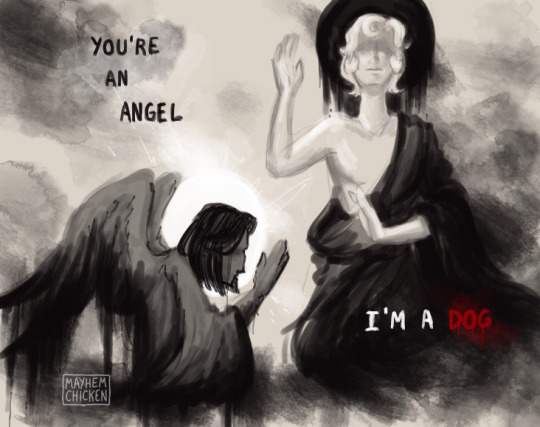
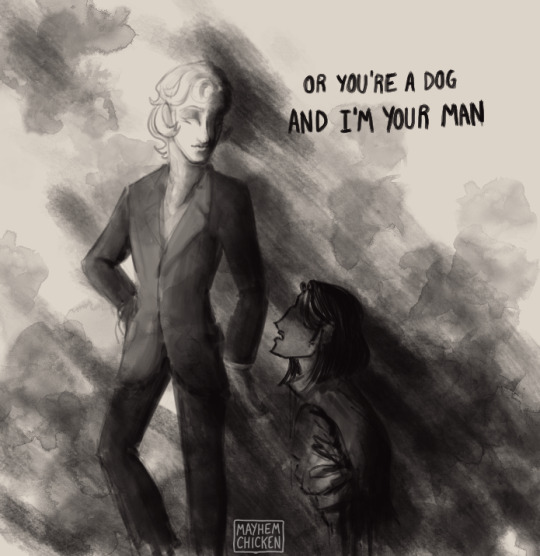
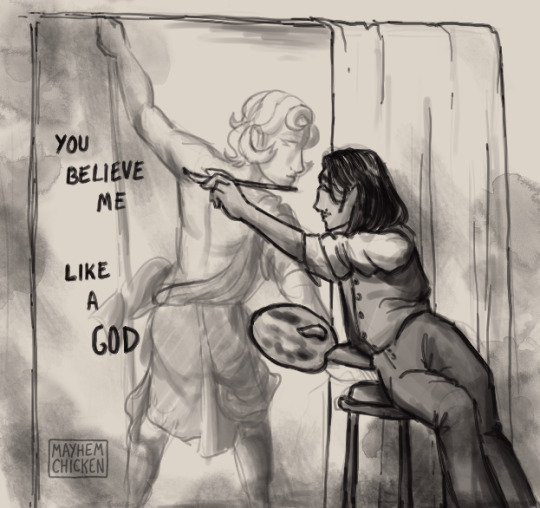
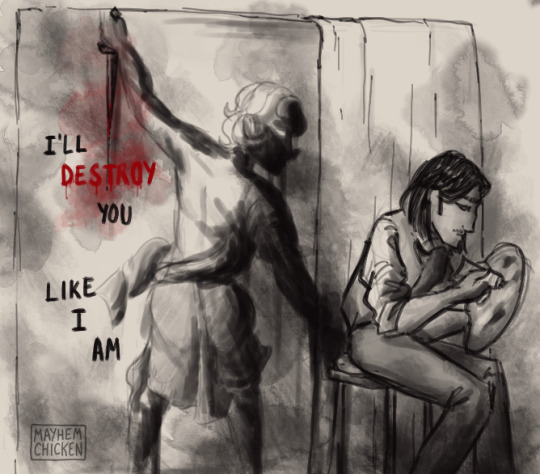

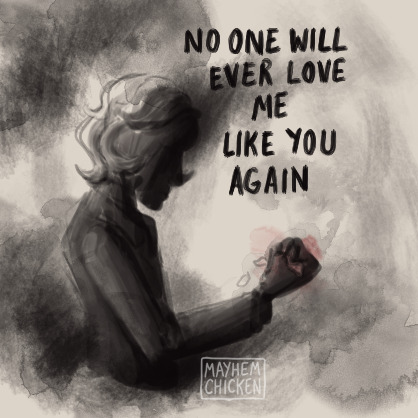
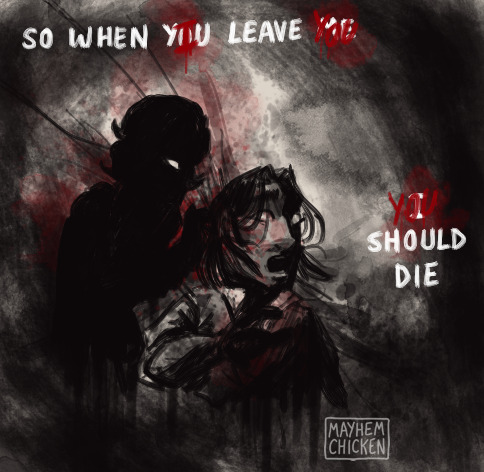
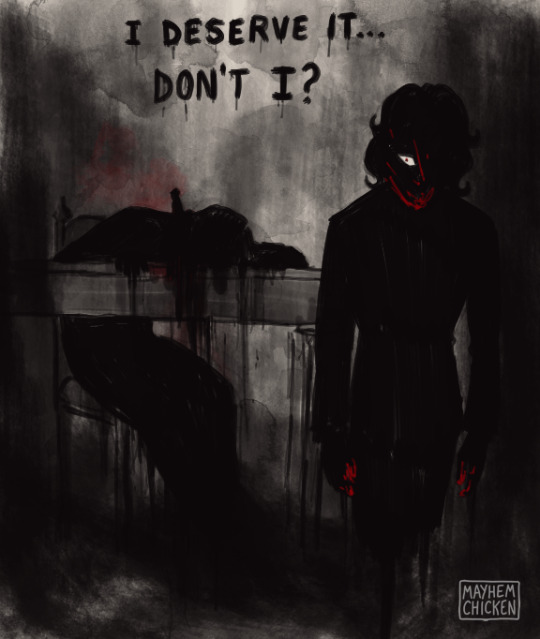
you believe me like a god // i'll betray you like a man
credits:
Song lyrics taken from I'm Your Man by Mitski
Artworks referenced:
The Annunciation - Workshop of Fra Filippo Lippi
Last Judgment in an Initial C - Lorenzo Monaco (Piero di Giovanni)
Boy with a Greyhound - Paolo Veronese (Paolo Caliari)
Venus and Adonis - Peter Paul Rubens
#art#artists on tumblr#the picture of dorian gray#tpodg#tpodg spoilers#basil hallward#dorian gray#cw blood#cw violence
731 notes
·
View notes
Text
Underrated Dorian Gray moment:
dorian: Alan this guy totally committed suicide 😰😰
alan: ok??? i’m still not helping your bitch ass??? 🤨😒
dorian: Alan I murdered him 😱😱😱😱😱😱
#He switches so fast#AND IT STILL DOESNT CONVINCE ALAN#It’s hilarious#the picture of dorian gray#tpodg#the picture of dorian gray spoilers#tpodg spoilers#dorian gray#alan campbell
96 notes
·
View notes
Note
If you think about it, both Dorian and Dracula were ruining/taking lives while maintaining/regaining youth. Though there's no portrait in Dracula's case, unless you count his oldness going to youthful Jonathan.
You're right, the more you look for parallels the more considerable they become.
Going to pop the rest of this under a cut for Dracula spoilers and discussion of suicide.
While Jonathan doesn't explicitly age like the portrait does, he undoubtedly looks older once Dracula has finished preying on him than he did at the start, as well as the other ways in which he and Dracula swap places (e.g. Dracula going out wearing Jonathan's clothes).
Association with both of them is damning too. In Dracula's case literally, as the people he feeds on become vampires in turn. In Dorian's case because he drags his victims down with him. Sometimes that is also literal: it includes two deaths by suicide, namely Alan Campbell and "that wretched boy in the Guards", and suicide is traditionally a mortal sin.
There are parallels in their victims. Dorian makes use of social convention to avoid the consequences of his actions, particularly as an upper-class man who preys on lower-class women (among others); an affair with him is socially ruinous for women but he comes out nearly unscathed. Dracula doesn't choose his victims quite as deliberately, but his choice of Lucy has the same effect. For instance, when Dracula lures Lucy out of the house in Whitby, Mina's first priority is to keep that a secret for the sake of her reputation.
They are both at their most powerful in their own spheres: Dracula in Transylvania, Dorian among London high society. They struggle when they step outside those spheres: the people in the opium den come much closer to recognising Dorian for what he is that anyone from the upper classes; Dracula is foiled by travelling to England. We don't see Dorian leave the country (we know he goes on holiday, but that doesn't really count) but I feel like if he went fully out of his sphere, he might be more readily identified. (A factor here is that Bram Stoker is more willing to demonise a foreigner than Oscar Wilde is willing to demonise the British upper classes).
And writing this has made me realise that pop culture Dracula - suave, sexy, encouraging people to lose their inhibitions - actually resembles Dorian quite a bit more than actual Dracula.
There's also at least one difference where you might expect a similarity. A key theme in Dracula is the relationship between the generations: Dracula is old age eating youth, Van Helsing is old age guiding and advising youth.
Meanwhile, something that strikes me about Dorian Gray that it's oddly timeless; we get told that twenty years have passed, but there's never much of a sense of that beyond everyone else looking older and Dorian remaining unchanged. No one has children, no one dies of old age, society and technology seem much the same from the start of the 20-year span of the novel to the end, despite the significant changes of the late 19th century.
And that timelessness, I think, is part of how little the novel is interested in the relationships between generations. There's not much sense that Dorian is now a middle-aged man (by Victorian standards, don't get annoyed with me, I'm in my 30s too) acting out a young man's role. There could be, it would be consistent with the plot, but that's not something that Wilde explores. There is a very strong message that Dorian should be a better person but not that he's behaving in an age-inappropriate way.
(I wonder if this relates to the novel's autobiographical elements. It can be fun and sexy to think of yourself as debauched and evil and corrupting but not so much as someone who's just been acting like a teenager for a decade too long).
This plays into other things as well. Dracula is a deliberately modern novel: it has telegrams, typewriters and trains. It's the battle of the modern against the medieval. Dorian Gray doesn't have any of these things. The conversation in chapter 3 about Americans is very much of its time, but there's not much else that places the action anywhere in the 19th century in particular. Dorian Gray is captured by a portrait, not a photograph. And he lives an oddly old-fashioned life, in some ways, for someone who is supposed to represent the Spirit of the Age. That's not a criticism of the novel, but it feels notable. It makes me wonder how Dorian Gray might have differed if Dracula had been written first and Wilde had read it.
Anyway, that was probably more rambling than you wanted, anon, but thank you for the ask, it was fun to consider :)
55 notes
·
View notes
Text
Dorian Gray and Basil Hallward
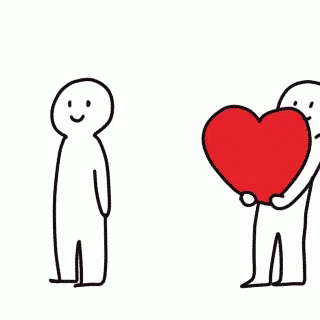
Recently been reading The Picture of Dorian Gray by Oscar Wilde and I had to make this.
SPOILERS - Basil did not only get rejected by the love of his life after confessing his love, he got FRIENDZONED.
'... You and I are friends, Basil, and we must always remain so.' - Dorian Gray

#basil really did love dorian#all the way till the end#and boy#the level of GAY in this book#is WOW#extra spoiler#things are about to get much worse for both dorian and basil#for anyone who doesn't know#the picture of dorian gray#is about a beautiful young man called dorian gray who trades his soul for eternal youth#he remains young and beautiful forever#but a portrait of him (painted by basil hallward) gets uglier and older every time he commits a sin#his sinful behaviour is influenced by a horror called lord henry wotton#the relationship between these three is VERY homoerotic btw#if you haven't read it you ought to#have a good day/night!#tpodg
26 notes
·
View notes
Text
Dorian and Seeking Reassurance
so I was going to include this in the reblog to the post by @applestorms, but it got too long so I'm making a separate post about this.
While Dorian mainly hides the proof of his "sins" away from the world, he actually does ask for reassurance for them too! To an extent.
Specifically, at at least two points in the novel, he does try to seek reassurance from Lord Henry about the things he's feeling guilt about.
[longish TPoDG analysis on Dorian & OCD w/ comparison to Death Note below the cut. please watch out for major spoilers for the book]
In the first case:
“Harry,” cried Dorian Gray, coming over and sitting down beside him, “why is it that I cannot feel this tragedy as much as I want to? I don’t think I am heartless. Do you?” “You have done too many foolish things during the last fortnight to be entitled to give yourself that name, Dorian,” answered Lord Henry with his sweet melancholy smile. The lad frowned. “I don’t like that explanation, Harry,” he rejoined, “but I am glad you don’t think I am heartless. I am nothing of the kind. I know I am not. And yet I must admit that this thing that has happened does not affect me as it should. It seems to me to be simply like a wonderful ending to a wonderful play. It has all the terrible beauty of a Greek tragedy, a tragedy in which I took a great part, but by which I have not been wounded.” “It is an interesting question,” said Lord Henry, who found an exquisite pleasure in playing on the lad’s unconscious egotism, “an extremely interesting question. I fancy that the true explanation is this: It often happens that the real tragedies of life occur in such an inartistic manner that they hurt us by their crude violence, their absolute incoherence, their absurd want of meaning, their entire lack of style. [...] Sometimes, however, a tragedy that possesses artistic elements of beauty crosses our lives. If these elements of beauty are real, the whole thing simply appeals to our sense of dramatic effect. Suddenly we find that we are no longer the actors, but the spectators of the play. Or rather we are both. We watch ourselves, and the mere wonder of the spectacle enthralls us. In the present case, what is it that has really happened? Some one has killed herself for love of you. I wish that I had ever had such an experience. It would have made me in love with love for the rest of my life. [...]”
Okay I'm not going to post all of the next few paragraphs (since that's too much text) but basically:
At first Dorian still feels guilty and so Henry continues to try to comfort him in his own way... a questionable way at that, specifically by expanding on the "explanation" he raises (as you can see above), according to which the reason why Dorian is incapable of feeling more strongly and more sorry about Sybil's death is that this is but a beautiful artistic tragedy -- that Sybil Vane was hardly really that real in the first place -- that women appreciate cruelty and dominance -- and that her death makes her whole existence beautiful as the final act of her play.
And then... Alright, let's look at how Dorian "comes to terms" with his inability to feel more grief or empathy for her (he can feel GENERAL guilt/shame and he feels it very strongly, but like... he can't really feel emotional empathy for Sybil if that makes sense, and it's bothering him until it's not [1]) at last.
“You said to me that Sibyl Vane represented to you all the heroines of romance—that she was Desdemona one night, and Ophelia the other; that if she died as Juliet, she came to life as Imogen.” “She will never come to life again now,” muttered the lad, burying his face in his hands. “No, she will never come to life. She has played her last part. But you must think of that lonely death in the tawdry dressing-room simply as a strange lurid fragment from some Jacobean tragedy, as a wonderful scene from Webster, or Ford, or Cyril Tourneur. The girl never really lived, and so she has never really died. To you at least she was always a dream, a phantom that flitted through Shakespeare’s plays and left them lovelier for its presence, a reed through which Shakespeare’s music sounded richer and more full of joy. The moment she touched actual life, she marred it, and it marred her, and so she passed away. Mourn for Ophelia, if you like. Put ashes on your head because Cordelia was strangled. Cry out against Heaven because the daughter of Brabantio died. But don’t waste your tears over Sibyl Vane. She was less real than they are.” There was a silence. The evening darkened in the room. Noiselessly, and with silver feet, the shadows crept in from the garden. The colours faded wearily out of things. After some time Dorian Gray looked up. “You have explained me to myself, Harry,” he murmured with something of a sigh of relief. “I felt all that you have said, but somehow I was afraid of it, and I could not express it to myself. How well you know me! But we will not talk again of what has happened. It has been a marvellous experience. That is all. I wonder if life has still in store for me anything as marvellous.” “Life has everything in store for you, Dorian. There is nothing that you, with your extraordinary good looks, will not be able to do.”
........so does this excerpt remind you of anything? Because it does remind me.


....yep.
This was what I meant by this (specifically the "OCD guilt can't catch me if my ego is big enough" part) lol:
"oh fuck. what the fuck. fuck I did that" -> "I feel awful. I did a horribly wrong thing" -> "..." -> "no, urgh, wait" -> "actually, that was... definitely a good thing!" -> "yeah. them dying was fine because they should've been killed and/or they're not real" (it's dehumanization either way) -> "that's right! I did a good thing. a very good thing. that was what I wanted all along. it was incredible, actually! it was a rare and unusually good event"
also interesting to note in this case is that, Dorian's rationalization process is aided by Henry, while Light did the whole thing on his own.
[1] On that note, Dorian's not being able to feel as much emotional empathy as he wants may be a result of NPD or something similar. And the thing is, not being able to feel affective/emotional empathy is not a choice, and it isn't in itself anything that inherently makes him bad. However, ironically, Henry's way of helping him out of his guilt over his inability to feel it for Sybil DOES lead Dorian to adopt a messed up way to view things. Like... the "right"(?) lesson here would be "it's okay that you don't emotionally feel grief and empathy over this, it doesn't inherently make you a bad person", but instead, Dorian learns "it's not just 'okay' to feel no grief and empathy over this, it's that that's literally THE right way of reacting to this tragedy! Because Sybil literally wasn't even real in the first place, her death is such beautiful theatre. There was literally nothing for ANYONE to feel grief or empathy over, and it was great how much you made her suffer."
In the second case:
“What would you say, Harry, if I told you that I had murdered Basil?” said the younger man. He watched him intently after he had spoken. “I would say, my dear fellow, that you were posing for a character that doesn’t suit you. All crime is vulgar, just as all vulgarity is crime. It is not in you, Dorian, to commit a murder. I am sorry if I hurt your vanity by saying so, but I assure you it is true. Crime belongs exclusively to the lower orders. I don’t blame them in the smallest degree. I should fancy that crime was to them what art is to us, simply a method of procuring extraordinary sensations.” “A method of procuring sensations? Do you think, then, that a man who has once committed a murder could possibly do the same crime again? Don’t tell me that.” “Oh! anything becomes a pleasure if one does it too often,” cried Lord Henry, laughing. “That is one of the most important secrets of life. I should fancy, however, that murder is always a mistake. One should never do anything that one cannot talk about after dinner. But let us pass from poor Basil. [...]” Dorian heaved a sigh, and Lord Henry strolled across the room and began to stroke the head of a curious Java parrot, a large, grey-plumaged bird with pink crest and tail, that was balancing itself upon a bamboo perch. [...]
This is less obvious of a case, but here Dorian does suggest to Henry the possibility that he might've murdered Basil to see how he would react.
Dorian is disappointed after Henry is like "You? No way, duh", which suggests that he actually wished Henry would seriously consider the possibility so that Dorian can either like feel a bit better from confessing his own crime to a party that is not judgmental, or be reassured by him that it's okay too; or both (see: Henry previously was... VERY accepting of Dorian being a major part of the cause for Sybil's death).
His attempt at seeking reassurance fails completely, however, just like Light's attempt for Soichiro and others to accept Kira and everything, because Henry does not believe Dorian to be a person capable of murder and refused to believe that Basil could've been murdered in the first place.
but yeah tl;dr: Dorian Gray sure is an accidental OCD allegory like Light Yagami. very intriguing
#tpodg#analysis#own analysis#dorian gray#lord henry wotton#the picture of dorian gray#death note#light yagami#i (ai)
15 notes
·
View notes
Note
That person is using the old-ass academic take that Dracula himself represents homosexuality (as something predatory) and Jonathan is the self-insert who is disgusted by Dracula and therefore homosexuality (so he represents homophobia).
By that logic, TPODG is a homophobic cautionary tale against homosexuality because Dorian is gay and therefore represents homosexuality while being the shittiest man alive who dooms people.
And Basil, who is also gay, is PUNISHED with death for his same-sex love.
Like, we can make wild logical jumps too, bucko.
Me: *responding out loud* "Yeah, Dorian is Gray--"
Me: *perishes*
Spoilers spoilers!
Yeah, Dorian is gay, and he is just the worst little twink to walk this planet Earth. He murders Basil for confessing his homosexual feelings to him. HE DESTIEL-CONFESSIONS BASIL. If that isn't some internalized homophobia. Hell, I think murder is pretty external.
Now, am I saying you can't like Dorian? Nah, you can have gay characters be awful, it's only fair. Be gay do crime. But like you can't deny there's some homophobia in the depiction of Dorian. Basil is painted in a slightly better light, and I think that could be because he's sexless. He's a repenting gay while Dorian is an evil sinful gay. Dorian is the very picture (haha zing) of what lawmakers in the Victorian era thought of gay people, just an unstoppable force of debauchery.
And holy shit, if they really think Dracula is 100% homosexual, why does he assault so many damn women? Why is his main deal enslaving women for his nefarious purposes? He took one bite out of one twink and people think he's a gay icon. He's really just a rich cunt who used his wealth and power to get whatever he wanted for hundreds of years until a ragtag group of young queer adults and their grandpa kicked his ass with paperwork and soliciting. And sharp knives.
And like? Dorian killing Basil? Basil idolized Dorian and that might have contributed a bit to Dorian's narcissism, but what really led to Dorian's downfall was him literally selling his soul in a Faustian bargain and then indulging every dirty impulse he ever had. Unlike with Basil Confession, Jonathan killing Dracula is not punishing the Count for being gay, he's reclaiming his life after it was nearly completely destroyed by an abusive older man. Jonathan is a white-haired genderqueer twink who tag-teamed with a hot cowboy to murder his ex sugar daddy, he does not deserve this disrespect.
9 notes
·
View notes
Text
I was going to say that Basil got off scott-free for having created an anti-ageing painting, allowing him to be one of the lucky few set of creators who didn't have to deal with the consequences of their actions unlike Victor Frankenstein, Dr. Griffin and or Dr. Jekyll, but then I remembered that he indirectly got killed by it after the painting lowkey corrupted Dorian so, lol, nevermind.
#tpodg#the picture of dorian gray#basil hallward#dorian gray#gothic lit#gothic literature#lil talks#tpodg spoilers
55 notes
·
View notes
Text
if i were paranoid by the painting that showcased my soul, i simply would stroke it gently with the knife first to see if it affected me before going full slaughter mode on it.
rip to dorian gray but i’m different.
#TO CURE THE SENSES BY MEANS OF THE SOUL???#I THINK NOTTT#THIS DUDE REALLY OUT HERE BEING DUMB#OKAY BUT ALL OF THE GAY SUBTEXT SGDDDD#dorian gray#the picture of dorian gray#oscar wilde#tpodg#tpodg spoilers#basil hallward#gay literature#dark academia#light academia#literature
133 notes
·
View notes
Photo
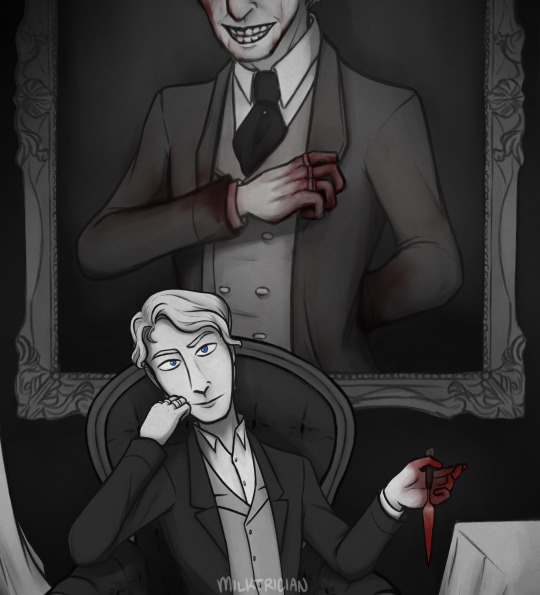
Finally finished this after reading the book a while back.
#the picture of dorian gray#dorian gray#tpodg#tpodg spoilers#classic lit#literature#classic literature#gothic literature#gothic lit#my art#digital#digital art#artists on tumblr#fan art#milktrician#Basil Hallward deserved better#tw blood
47 notes
·
View notes
Note
honestly??? I love exhibitionist gramon
I think it's cute that now that they're not in a secret relationship, they can post selfies and stuff together 🥺
Right?? It's so nice they don't have to hide anymore. The shit has hit the fan so badly I think Damon is like 🤷♂️ welp, might as well be extra because the media already knows what they know and has made me out to be *that guy* so I'm gonna choose being happy with my bf lol
2 notes
·
View notes
Text
my brothers got family rings from my father but since i'm trans i don't get a cool family heirloom thing so heres the knife with a Family History that i stole (is it even stealing if it's been sitting in a drawer for years??) i named it dorian bc my names basil and it has both enamored me and stabbed me
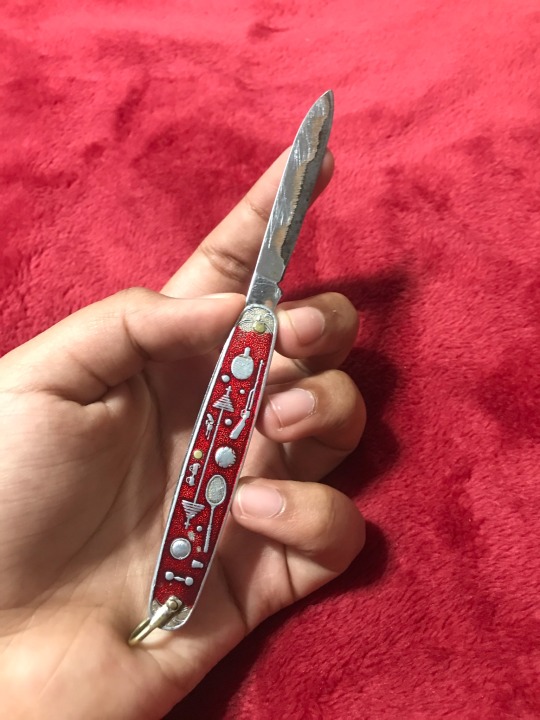
#fuck gender roles#im not even a girl anymore but it still sucks#ftm#the picture of dorian gray#tpodg spoilers#knife tw
34 notes
·
View notes
Text
in the least fatal way possible I want to love someone as much as Basil loved Dorian
#mans got stabbed#didnt even see it coming#but I want to love someone that much#enough to have faith in them even when they are about to snap and murder ne#me*#except they do not murder me#they just accept the fact#maybe love me too#tpodg#the picture of dorian gray#tpodg spoilers#oh my god would I be considered a basil kin#what IS a kin#best I dont know#or make any claims#but I vibe with Basil#oscar wilde#dorian gray#basil hallward
46 notes
·
View notes
Note
Do you have any thoughts on Dorian's protestation that he's not responsible for the vices of his peers, vis à vis the ongoing question of how responsible Lord Henry is for Dorian's *all that* ?
I started writing a nice short answer to this, then it turns out that in fact I have many thoughts, all a bit disconnected from each other. Sorry about that.
So TPODG is all about layers upon layers of influence. Dorian's influence on his peers is one of those layers; so is Lord Henry's influence on Dorian; so is the influence of the "poisonous" yellow book on Dorian; and above all of that, there's Wilde's influence on his readers and artists' influence on their audience in general, which the preface primes us to start thinking about.
Dorian's influence on his peers One thing I've just spotted is that Dorian disclaims his responsibility when it comes to corrupting men ("what is that to me?") but hedges when it comes to corrupting women ("You go too far"). Maybe that's because he is more responsible - I think the implication of chapter 12 is that Dorian had consensual affairs with Lady Gwendolen and Lord Gloucester's wife, but it's ambiguous.
There's a whole bundle of things that are probably too much to get into here: the fuzzy line for Victorians between being the victim of sexual assault vs being a willing and eager participant in an affair; Victorian feelings on female agency in general; and whether you could show a respectable noblewoman willingly committing adultery in a Victorian novel without being condemned for obscenity (see reactions to Jude the Obscure, for instance). I'm not sure which of these things were the greatest influence behind the choice of vices that Wilde implies.
Lord Henry's influence on Dorian Basil is the moral voice of the novel, and Basil thinks Dorian's influence is his own fault. But equally, Basil has heard all the same things from Lord Henry as Dorian has, and even quotes Henry in Chapter 12 ("I remember Harry saying once that every man who turned himself into an amateur curate for the moment always began by saying that, and then proceeded to break his word") but Basil remains a good man. So the very existence of Basil is an argument against the idea that Dorian is responsible for his friends' vices, or that Lord Henry is responsible for Dorian's.
The yellow book's influence on Dorian The book has a poisonous influence on Dorian... but Dorian "never sought to free himself from it". He is corrupted, but only because he lets himself be corrupted. He has agency that he declines to use. He could read something different! The novel concedes the point that what you read influences your choices, but not that this exonerates Dorian. (And interestingly, it's always the fault of the book, as if it were an independent actor, not the fault of the writer).
Wilde's influence on his readers The collected reviews and letters about TPODG, including Wilde's defence, are a fun read (nb spoilers for the ending):
(Wilde's replies are, above all, spectacularly snobbish. I'm less surprised that they hated him after reading them.)
It includes the critics who managed to miss the point spectacularly:
The "moral," so far as we can collect it, is that man's chief end is to develop his nature to the fullest by "always searching for new sensations," that when the soul gets sick the way to cure it is to deny the senses nothing, for "nothing," says one of Mr. Wilde's characters, Lord Henry Wotton, "can cure the soul but the senses, just as nothing can cure the senses but the soul."
I mean. Guys. How much do you have to not get it to think that Lord Henry is a character we're supposed to agree with??
There's a three-way argument about the influence of the novel, where the options are:
It has no influence beyond what you bring to the table; it's art for art's own sake; there is no such thing as a moral or immoral book. Wilde makes that argument in his letters, though I always feel like there's an undercurrent of irony there.
It has a negative moral influence; it's corrupting and should have been censored. This is the view of the Scots Observer, among others: "Mr. Oscar Wilde has again been writing stuff that were better unwritten."
It has a positive moral influence; its moral is good. The Speaker thought so: "[Wilde] might fairly have insisted on the particular proposition—that the teaching of the book is conspicuously right in morality. If we have correctly interpreted the book's motive—and we are at a loss to conceive what other can be devised—this position is unassailable."
I think TPODG exists more to have this argument than to win it. No matter what your view, the different layers of influence in the novel give you something to argue with. I enjoy that a lot, and I suspect Wilde did too.
#dorian gray weekly#hope you enjoyed this ramble anon#i tried to bring it all together in a coherent point and i failed
21 notes
·
View notes
Text
This is super interesting so I gave it a go if you don't mind! My example is Oscar Wilde's Dorian Gray:
Consumption: Dorian Gray's morality is being consumed by Lord Henry, and it is his morality that is being consumed instead of his youth by time itself. Who is fed? Lord Henry. Who is starving? Basil and Sybil. Dorian is being fed, both in a material sense and in terms of consuming people's souls. It was published in a magazine periodically so the reader would've been consuming it little by little.
Performance: Lord Henry is definitely performing. He performs for his audience at his aunt's house but tries to come off as naturally witty. Dorian, at first, is performing to meet Lord Henry's approval until it is no longer a performance. Sybil performs Shakespeare. Basil is so unusual specifically because he is not performing.
Narrative: The narrative is supposed to be following Dorian but then there's that weird bit where Wilde just pops off about jewels and silks and gets lost. Then when he comes back, Basil is out here alluding to a subnarrative that is so juicy. He is out here like "Dorian, wtf did you do to that lord's son?" Etc. It is so juicy but Wilde can't tell us this subnarrative outright, whether that be because of his time period's own moral limitations or because he knows it will itch my brain only giving us a tiny, vague snippet of Dorian's sins.
Wilde once said the three major characters were versions of himself: Lord Henry was what people thought he was, Basil was what he thought he was and Dorian was who he wanted to be. And obviously people have drawn comparisons to the novel and his own life, so in a weird way it can be said that the narrative is a weird foreshadowing of the narrative of Wilde's own life.
Love: Love is such a huge part of this story. Basil loves Dorian. Dorian loves Lord Henry. Lord Henry loves attention. Dorian also loves (?) Sybil. Dorian loves himself the most. Sybil loves Dorian. Sybil's brother loves Sybil (in a family way).
i think that all stories are about consumption, performance, and/or narrative, and the best combine elements of all three
#tpodg#tpodg spoilers#i troed not to put too many spoilers though#im so tired its 3am why am i typing this
15K notes
·
View notes
Text
WAIT HUH. I did not realize this until a minute ago, but so apparently November 10 is
Dorian Gray's birthday
[major TPoDG spoiler] day (you probably know the one if you know what happens in the novel. like, y'know, the big major spoiler event. stabby stabby. yeah.)
Soichiro Yagami about-to-die day (-> and by extension, a Soichello holiday!)
taylor swift's album "reputation" release anniversary apparently
... also taylor swift's song "Blank Space" release anniversary. yeah that accidental Death Note song
well I am glad that I have done a lot of Dorian-posting and TPoDG shilling today and for the last few days in general. right on time for his birthday. and also for the day he [redacted for spoilers] too. wow! Soichello 🤝 [a certain TPoDG ship] Solidarity Day!
#i (ai)#tpodg#dorian gray#soichiro yagami#soichello#death note#is this funny to only me specifically or.#but gdi this IS genuinely very funny to me
7 notes
·
View notes
Text
Fellas, is it gay to go to prison for ten years to cover for your 'friendship coloured by romance' ????
#dark academia#dark academia aesthetic#literature#classics#poetry#if we were villains#iwwv#iwwv quotes#iwwv spoilers#tsh#the secret history aesthetic#oscar wilde#the picture of dorian gray#tpodg
145 notes
·
View notes